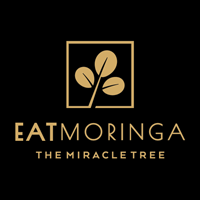

Moringa Benefits- The All in One Vitamin and Nutrient Tree
MORINGA BENEFITS
Here are the benefits of continuous intake of Moringa Leaf Powder:
1. Increases the Natural Defenses of the body
2. Provides nourishment to the eyes and the brain.
3. Promotes metabolism with bio-available ingredients
4. Promotes the Cell structure of the body
5. Promotes natural Serum cholesterol.
6. Lowers the appearance of wrinkles and fine lines.
7. Promotes the normal functioning of the liver and the kidney.
8. Beautifies the skin
9. Promotes energy
10. Promotes proper digestion
11. Acts as an antioxidant
12. Takes care of the immune system of the body
13. Promotes healthy circulatory system
14. It is an anti-inflammatory
15. Gives a feeling of general wellness
16. Supports the normal sugar levels of the body.
Moringa leaf boosts your energy in a natural manner, and is a remarkable source of nutrition. This energy promotion does not happen because of sugar, so it is lasts for a long time. Individuals ingesting it say that their ulcers are healed, tumors restricted, there are reduction in the arthritis pains and inflammations, controlled blood pressure, the skin problems are restored, and finally they have stronger defenses against diseases.
Another property of the Moringa leaf is its soothing ability, because of which it can lower the blood pressure and promotes good sleep. It can also purify water since it has a detoxifying effect. Also a coagulant agent, Moringa can attach itself to hazardous bacteria and other materials, a process that is surmised to occur in the body too. The happy outcome is more sustained energy without any over-activity, balanced hormone and gland system, controlled blood pressure, and a rested nervous system.
The Bridge to Better Health is through Better Nutrition
You cannot have good health if you do not consume food that is nutritional. How does nutrition, with its vitamins, minerals and other nutritional compounds promote a healthier lifestyle? Professor Mike Golden, who works with United Nations agencies involved in malnutrition, says much of the problem with nutrition is not the quantity of food, but the quality of food we eat, with people needing about 40 different nutrients to be healthy.
Organic nutrients include carbohydrates, proteins or amino acids, lipids, and vitamins. Inorganic nutrients include minerals. Water is sometimes included in a listing of nutrients. Vitamin A acts as a shield against eye disease, skin disease, heart ailments, diarrhea, and many other ailments. Vitamin C fights a host of illnesses including colds and the flu while supporting the cardiovascular system. Calcium is necessary in building strong bones and teeth, plus it helps prevent osteoporosis.
The combination of vitamin D and calcium brings a remarkable reduction in cancer risk. Potassium is essential for the functioning of the brain and nerves, and significantly lowers the risk of a stroke. Finally, proteins are necessary for the basic building blocks – amino acids – of all of our body cells.
Interaction between nutritional compounds is necessary for health in all ways. Vitamins cannot function without minerals. Without minerals, your body can’t function. Vitamins, minerals, and other nutrients are best absorbed and used by the body when they are derived from natural sources (plants and animals) and are present in naturally occurring complex compounds, not as separate compounds as formulated in pills.
A new review involving dozens of studies of the antioxidant vitamins A, E and C, confirms this, finding the popular supplements don’t help you live longer. As a result, some researchers now believe antioxidants work only when they are in food. Alice Lichtenstein, a professor of nutrition science and policy at Tufts University, not involved with the review, says the study’s main message is: “Rely on food to get your nutrients.”
The human body requires 20 amino acids to grow, build, and maintain cells. Amino acids are the building blocks of protein. Amino acids relate to proteins as letters of the alphabet relate to words.
The proteins in Moringa TEA gives 18 of the 20 known amino acids, including all eight amino acids classified as essential. These essential amino acids cannot be synthesized by the body and must come from a person’s diet, usually from red meat or dairy products. These foods are not available in many parts of the world and are lacking in the diets of vegetarians, elderly people, and children.
Moringa, with it’s 90+ verifiable nutrients, not only contains all these elements, but also has significant portions of Vitamins B, B1, B2, B3, D, and E, polyphenols (antioxidants), other minerals, fiber, and is one of the highest, naturally occurring sources of chlorophyll.
Read More on our Moringa Page
